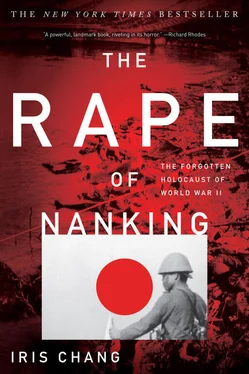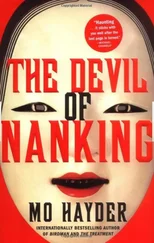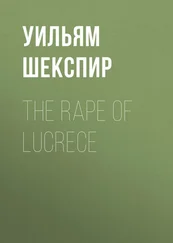6. An estimated 20, 000–80, 000 Chinese women were raped: Catherine Rosair, “For One Veteran, Emperor Visit Should Be Atonement,” Reuters, October 15, 1992; George Fitch, “Nanking Outrages,” January 10, 1938, George Fitch Collection, Yale Divinity School Library; Li En-han, a historian in the Republic of China, estimates that 80,000 women were raped or mutilated. (“‘The Great Nanking Massacre’ Committed by the Japanese Army as Related to International Law on War Crimes,” Journal of Studies of Japanese Aggression Against China [May 1991]: 74).
6. Many soldiers went beyond rape: Author’s interviews with survivors.
6. “bestial machinery”: Christian Kröger, “Days of Fate in Nanking,” unpublished diary in the collection of Peter Kröger; also in the IMTFE judgment, National Archives.
7. “Nothing the Nazis under Hitler would do”: Robert Leckie, Delivered from Evil: The Saga of World War II (New York: Harper & Row, 1987), p. 303.
10. During the conference I learned of two novels: R. C. Binstock, Tree of Heaven (New York: Soho Press,1995); Paul West, Tent of Orange Mist (New York: Scribners, 1995); James Yin and Shi Young, The Rape of Nanking: An Undeniable History in Photographs (Chicago: Innovative Publishing Group, 1996).
12. “erecting a cathedral for Hitler in the middle of Berlin”: Gilbert Hair, telephone interview with the author.
CHAPTER 1: THE PATH TO NANKING
19. For as far back as anyone could remember: Tanaka Yuki, Hidden Horrors: Japanese War Crimes in World War II (Boulder, Co.: Westview, 1996), pp. 206–8. (Although Tanaka is the author’s surname, he uses an American-style of presenting his name as Yuki Tanaka for this English-language book.) According to Tanaka, the modern Japanese corrupted the ancient code of bushido for their own purposes. The original code dictated that warriors die for just causes, not trivial ones. But during World War II, officers were committing ritual suicide for the most absurd of reasons, such as for stumbling over their words when reciting the code. The concept of loyalty in bushido was also replaced by blind obedience, and courage by reckless violence.
20. It is striking to note: Meirion Harries and Susie Harries, Soldiers of the Sun: The Rise and Fall of the Imperial Japanese Army (New York: Random House, 1991), p. vii.
21. “A parallel situation”: Samuel Eliot Morison, “Old Bruin”: Commodore Matthew C. Perry 1794–1858 (Boston: Atlantic–Little, Brown, 1967), p. 319.
22. “As we are not the equals of foreigners,”: Delmer M. Brown, Nationalism in Japan: An Introductory Historical Analysis (Berkeley and Los Angeles: University of California Press, 1955), p. 75. (Italics mine.) (Brown’s citation: Satow, trans., Japan 1853–1864 , or Genji Yume Monogatari, p. 4).
24. “destined to expand and govern other nations”: Taiyo, July 1905, quoted in ibid., p. 144.
24. Modernization had earned for the country: Ibid., p. 152.
26. The population had swollen: Paul Johnson, Modern Times: The World from the Twenties to the Nineties (New York: Harper-Collins, 1991), p. 189.
26. “There are only three ways left to Japan”: W. T. deBary, ed., Sources of the Japanese Tradition (New York, 1958), pp. 796–97, quoted in ibid., p. 189.
27. Why, the military propagandist Sadao Araki: Quoted in ibid., p. 189.
27. Nor were Japan’s covetous intentions: Ibid., p. 393. For more information about the ambitions of some Japanese ultranationalists regarding the United States during that era, see Records of the Deputy Chief of Naval Operations, 1882–1954, Office of Naval Intelligence, Intelligence Division—Naval Attaché Reports, 1886–1939, box 525, entry 98, record group 38, National Archives. As early as December 1932, a U.S. naval intelligence report noted that best-sellers in Japan tended to be books on war—particularly on the possibility of American-Japanese war. This report and others analyzed the content of Japanese books, articles, pamphlets, and lectures that dwelled on the topic of a Japanese invasion of the United States. Some of these publications bore titles such as “The Alaska Air Attack,” “The Assault on Hawaii,” and “The California Attack.” Here are a few examples of Japanese propaganda from the early 1930s that made their way into American naval intelligence files (the following names come directly from an English-language report and may be misspelled):
—A lecture by Captain K. Midzuno revealed that the Japanese military not only developed strategies for attacking Pearl Harbor from the air but also foresaw the possibility of American raids on Tokyo.
—In Japan in Danger: A Great Naval War in the Pacific Ocean , Nakadzima Takesi described scenarios of a victorious war waged by the Japanese against the United States through naval battles and air bombardment.
—In Increasing Japanese-American Danger , Vice Admiral Sesa Tanetsugu wrote that he was convinced of the inevitability of Japanese-American conflict.
—Ikedzaki Talakta presented in The Predestined Japanese-American War a compilation of articles on the subject of the inevitability of a Japanese-American war. A newspaper review lauded this book as “a work of passionate love for the native land” and assured readers that “if Japan draws its sword, the false, haughty America will be powerless” (February 3, 1933, report, p. 260).
27. “Before a new world appears”: Delmer Brown, Nationalism in Japan, p. 187; see also Okawa Shumei, “Ajia, Yoroppa, Nihon (Asia, Europe, and Japan),” p. 82, translated in “Analyses,” IPS document no. 64, pp. 3–4 (italics added).
29. To prepare for the inevitable war with China: Tessa Morris-Suzuki, Showa: An Inside History of Hirohito’s Japan (New York: Schocken, 1985), pp. 21–29.
30. “We appear to be standing in the vanguard of Asia”: Quoted in Ian Buruma, The Wages of Guilt (New York: Farrar, Straus & Giroux, 1994), pp. 191–92.
30. “Why are you crying about one lousy frog?”: Ibid., p. 172.
30. “deep ambivalence in Japanese society” : Letter from Rana Mitter to author, July 17, 1997.
31. It was reputed that more than one teacher: Harries and Harries, Soldiers of the Sun, p. 41.
31. A visitor to one of its elementary schools: Iritani Toshio, Group Psychology of the Japanese in Wartime (London and New York: Kegan Paul International, 1991), pp. 177, 191.
31. abuse: Ibid.
32. “I do not beat you because I hate you”: Ibid., p. 189.
32. The intensity of the training in Japan: 106/5485, February 1928 report, p. 136, Papers of the British War Office in the Public Record Office, Kew, London. An OSS report on Japanese army training summarizes the process of indoctrination: “The smallest infraction or error in regulations brings instant and severe punishment. Act tough—shout, don’t talk—scowl, don’t look pleasant—be tough—have no desires—forget your family at home—never show emotionalism—do everything the hard way—don’t let yourself be comfortable—train and discipline your desires for comfort, food and water—suffer pain and hardship in silence—you are a son of Heaven”; report no. 8974-B, dissemination no. A-17403, distributed December 28, 1943, Research and Analysis Branch Divisions, Intelligence Reports “Regular” Series, 1941–45, box 621, entry 16, record group 226, National Archives.
Читать дальше











